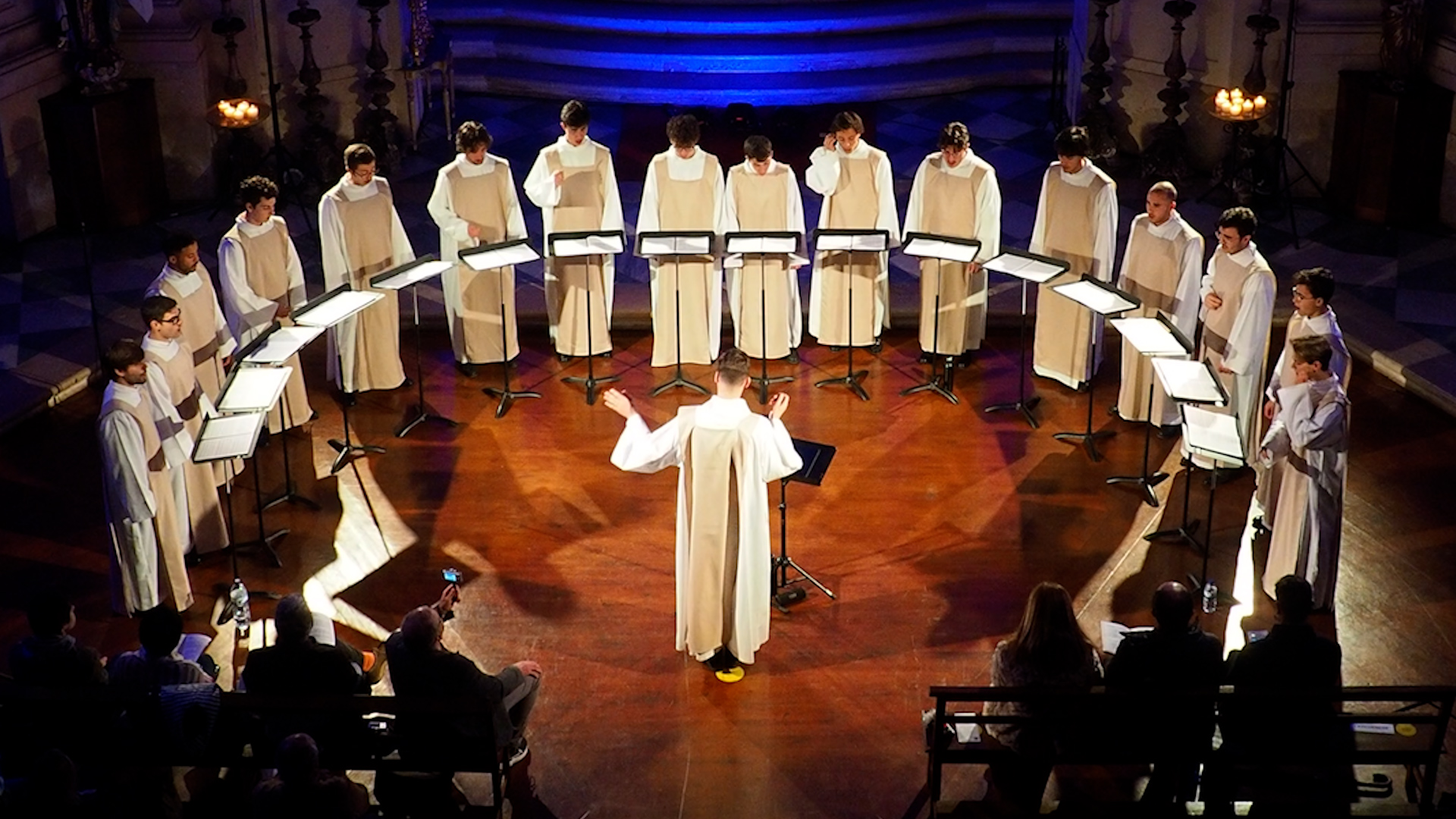
© Bruno Cristiano / Jerverlag
Performed by the male choir Vetera Vox under the direction of maestro João Carlos Perdigão. Absolute premiere on March 25, 2024, at the Sanctuary of Senhor Jesus da Pedra, during a liturgical concert entitled “O vos omnes”, integrated into the cultural program of Holy Week in Óbidos. New music video edited by Jerverlag on the JER Channel.
Jerverlag presents O vos omnes: In Portuguese: “O vós Homens [ou todos]”, is a contemporary motet, composed by José Eduardo Rocha, in July 2023, on a Lamentation of Jeremiah, in Latin, for male voices, inspired by the knowledge of maestro João Carlos Perdigão and the male choir he directs, Vetera Vox, to whom the piece is dedicated.
Was premiered on March 25, 2024, at the Sanctuary of Senhor Jesus da Pedra, during a liturgical concert entitled “O vos omnes” (with works by Palestrina, Bruckner, Victoria, Perdigão, José Joaquim dos Santos, among others), integrated into the cultural program of Óbidos Holy Week.
Jeremiah’s Lamentations: They are a set of biblical texts (Book of Lamentations), probably written after the destruction of the temple in Jerusalem (6th century BC), and are arguably attributed to the prophet Jeremiah.
Canto de Verónica: The chosen Lamentation (1: 12) is usually called The Song of Veronica, as it is traditionally sung during Holy Week, with the display of a Holy Shroud.
Form analysis: The piece is divided into three main parts: Intro, Responsorium and Versus. The three parts are interspersed with a kind of ritornello, based on the first syllable (the big O) and used in an onomatopoeic way. In this piece, the Latin, a dead language, is worked freely, sometimes as pure phonetic material. From the primordial motet, the idea of accumulating several texts was preserved, although here is limited to the use of the Hebrew alphabet, in the introduction, in which the specific Lamentation begins after the enunciation of the letter Lamed. The original text is used in its entirety. The idea of accumulation is more explicit in the score, when, in the final section, the composer asks the choristers to all set their cell phones to ring at the same time, ad libitum, as a kind of meta-gamelan, suggesting a sound image of the contemporary crowd, over which, in stress [lamentavelmente], the choristers continue to sing the vocal parts.
© JER, March-April, 2024